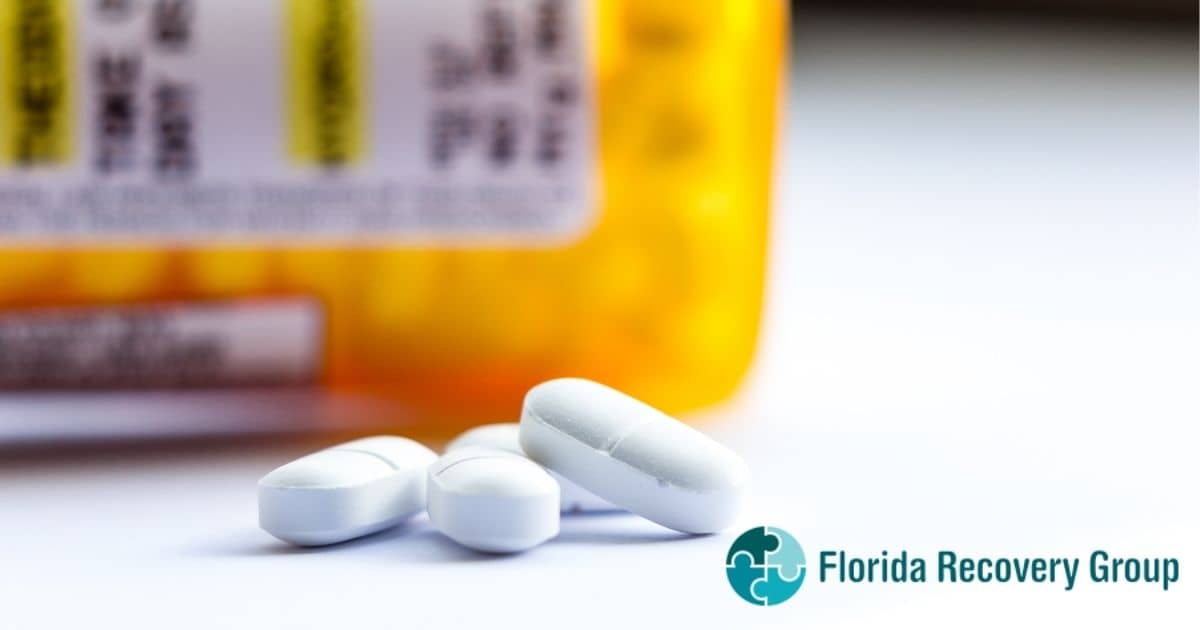
14 Dec Percocet Abuse, Addiction, and Treatment
Opioid abuse is a serious problem in the United States. The latest wave of opioid abuse started in the 1990s and has risen sharply over the past three decades. The number of people visiting the emergency room because of opioid use rose 152% in the early 2000s, and by 2013, 46% of drug-related medical emergencies involved opioid use. Research suggests that over 35,000 deaths worldwide were caused by opioid abuse.[1]
Opioid abuse can begin when people are given a prescription for certain painkillers, including Percocet. Percocet is one of the most widely prescribed opioids in America. If you or someone you love are abusing Percocet, you must get the life-saving treatment you need as soon as possible.
Recovery from Percocet addiction is possible, but you must be able to recognize that there is a problem and know what steps to take next. The more you know about Percocet abuse and treatment for Percocet addiction, the better able you will be to get the help you need.
Understanding Percocet Abuse
Percocet is a prescription opiate painkiller. It contains a combination of Oxycodone and Acetaminophen, which is the main ingredient of Tylenol. Percocet is often prescribed to help people manage the pain after surgery or trauma and is sometimes used to treat chronic pain.[2] The pain-relieving effects of Percocet last for between three and five hours.
Opiate painkillers like Percocet can give users a sense of euphoria or relaxation. This leads some people to take Percocet in a higher dose or more frequently than prescribed. Some people may take Percocet recreationally–without a prescription–to get these pleasurable effects. In time, taking greater amounts of Percocet or taking it more often than recommended can result in the person developing an addiction to the drug.
Recognizing Percocet Addiction
When someone is living with Percocet addiction, they may have a range of changes to their mood or behavior. Some of the behavioral signs of a Percocet addiction include:
- Isolating
- Secretive behavior
- Lying or covering up their use
- Stealing
- Having multiple prescriptions for Percocet from different doctors
- Financial trouble
- Legal trouble
- Falling behind at work, school, or in responsibilities at home
Someone who becomes addicted to Percocet may have a sudden change in their behavior. A person who was reliable and honest may suddenly become untrustworthy or dishonest. Someone who was a good employee may have poor performance or unexplained absences.
Percocet abuse and addiction can also have severe physical effects.
- Fatigue
- Dizziness
- Stomach pain
- Diarrhea
- Headache
- Anxiety
- Poor memory or concentration
If you or someone you love is struggling with Percocet addiction, effective treatment is available. Reach out to your medical provider or the staff at the Florida Recovery Group for information about how to begin treatment for Percocet addiction.
Getting Treatment for Percocet Addiction
Often, the first step of Percocet addiction treatment is going through medically supervised detox. During detox, your body has the opportunity to remove toxins, including opioids, and return to a more natural, balanced state.
Without the presence of Percocet, you will likely experience withdrawal. Withdrawal from opioids, including Percocet, can be difficult. Having medical supervision during withdrawal is essential. It means that you will be observed and treated for uncomfortable withdrawal symptoms, including intense muscle aches and severe insomnia.
After a safe, complete detox, you will begin a Percocet addiction treatment program. Addiction treatment programs are offered in a variety of settings and levels of care. Whether you participate in an inpatient, outpatient, or partial hospitalization program (PHP), you will likely receive some combination of:
- Individual therapy
- Group support
- Education
- Medication management
- Mental health and medical care
- Holistic therapies
Your doctor or addiction specialists will help determine which level of care will meet your needs. If you have a mental illness or physical health condition, you should receive treatment for these at the same time as your addiction treatment.
After completing a treatment program, you will need to find ways to stay active and engaged in recovery for the rest of your life. For some, this means continuing therapy or regularly attending group support meetings. Since addiction can not be cured, you must continue to participate in treatment activities that can help you avoid relapse and stay committed to sobriety.
No one chooses to develop an addiction or live with its consequences. It is possible to overcome your Percocet addiction and live a fulfilling, healthy lifestyle. Getting comprehensive, high-quality addiction treatment can give you the best chance at a fresh start.
Find Help for Percocet Abuse and Addiction Today
If you or someone you love is struggling with Percocet addiction or you need support at any stage of addiction recovery, you are not alone. Reach out to the caring staff at the Florida Recovery Group for more information about the addiction treatment programs we offer.
We know that recovery is possible when people get the support and care they need and deserve. That is why we carefully design our programs to empower people as they move past their addiction and into the life they want to be living.
Don’t wait another day for the life-saving addiction treatment you need. Call now to speak to one of our admissions counselors about getting started.
References:





